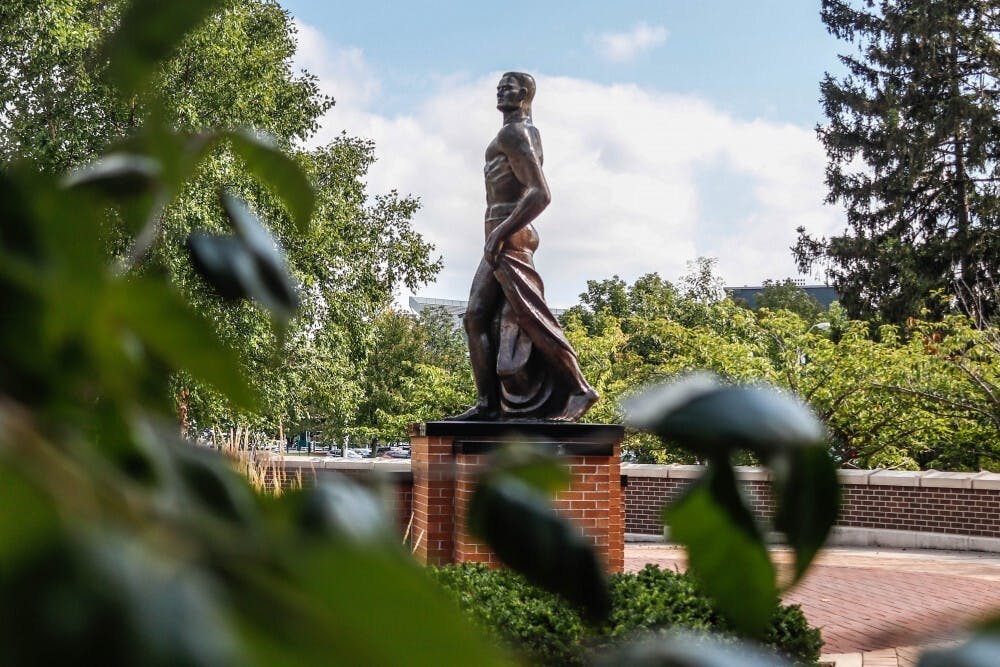Michigan State University students now have until Dec. 8 to request a "Credit-No Credit" grade for courses that do not fulfill major or general education requirements for this semester. This was formally announced on the university's advising page, last updated Nov. 17. Here is some more information about why the policy was instituted and how it affects students.
What is the Credit-No Credit policy?
The Credit-No Credit, or CR-NC, policy has been established within MSU for years. The policy allows students to be able to take classes outside their field of study without it affecting their GPA.
To gain credit, undergraduate students must earn a GPA above 2.0, while graduate students must earn a GPA above 3.0. A "no credit" grade is applicable when undergraduate and graduate students score below a 2.0 and 3.0, respectively.
If a student opts in for CR-NC, the Office of the Registrar records it, and CR or NC will be placed in the student's transcript. To be granted the option of CR-NC, students must request and communicate with the Office of the Registrar.
After CR or NC is requested and approved, students may not change their decision. Students cannot have more than 20 "CR" grades within the system. However, limitations on how many credits a student can take on the basis of CR-NC will generally be determined by the college.
When is the deadline to request?
The deadline to request a CR-NC grading option is typically during the middle of the semester. However, during the COVID-19 pandemic and following the Feb. 13 campus shooting, MSU adapted the policy to accommodate to students' needs.
This semester, MSU extended the deadline to request CR-NC to the last day of classes, Dec. 8, to alleviate and reduce stress for students affected by the Israel and Hamas conflict, Vice Provost and Dean of Undergraduate Studies Mark Largent said. However, this only pertains to elective classes and not general education or major-required classes.
“(President Woodruff) asked us for ideas to help lift some stress from students who might be disproportionately impacted by those kinds of things,” Largent said. “We have tools at our disposal to help students adapt to different kinds of circumstances that arise this semester.”
Why was the deadline extended?
Vice President of Arab Cultural Society, or ACS, Saba Saed said the CR-NC deadline extension was one of the many requests made by ACS, the Muslim Student Association and Students United for Palestinian Rights when they met with Interim President Teresa Woodruff. This was after Saed attended the most recent Board of Trustees meeting, where she said she "called them out a little bit."
"(Woodruff) wanted to meet with us," Saed said. "We said credit and no credit, and that's the bare minimum. I think it's kind of hypocritical and to say (the decision) was like, out of grace, especially since ... that was the only thing she kind of met us with and listened to."
Saed said she also talked to Woodruff about how students’ academics have suffered following the conflict escalating on Oct. 7. As a student leader, she said, she and others have had to make the sacrifice of missing class to advocate or meet with faculty to "talk about certain things" and "get resources."
“And that is kind of the institution's fault — they didn't provide it, that we had to take that step," Saed said. "So that's why we asked for the credit no credit, and I'm glad that they followed through with it.”
What do students think?
Saed said she “really liked” the decision to extend the CR-NC request deadline but didn’t like how the administration made “it as if it was ... made out of consideration.”
"But I think that it's great," she said. "I think if it can help a lot of students during this rough time, then I'm glad and I'm happy about it."
However, she was disappointed that the policy only applied to elective classes and felt it was therefore "not actually helpful."
“To kind of have that option, what makes you think it's only for elective classes?,” Saed said. “If we declined academically, obviously it would be in every single class. I'm not going to be like, okay, just my elective classes. I think it’s kind of inconsiderate. It increases the distrust and no confidence.”
Support student media!
Please consider donating to The State News and help fund the future of journalism.
Saed hopes the policy is extended to all courses or can be utilized for classes on a case-by-case scenario.
“Do right, do right,” Saed said. “Like that’s it, but do something to the full extent of it.”
Discussion
Share and discuss “Deadline to request Credit-No Credit extended until Dec. 8 ” on social media.







